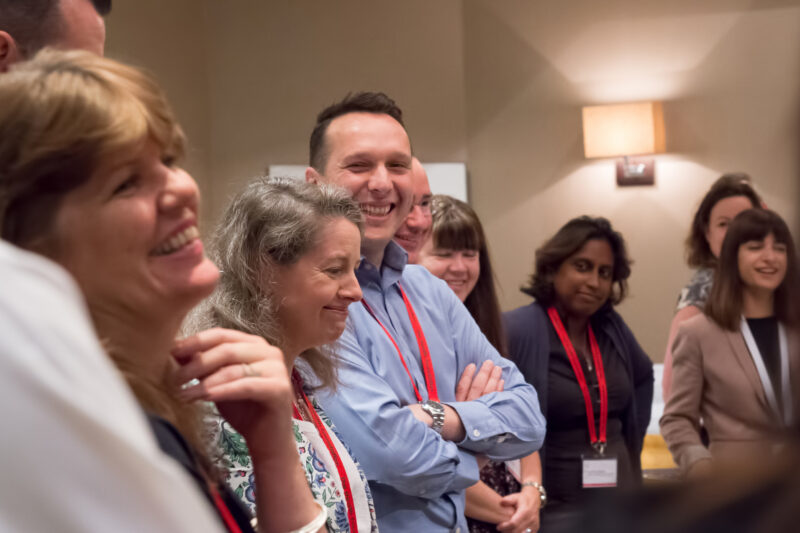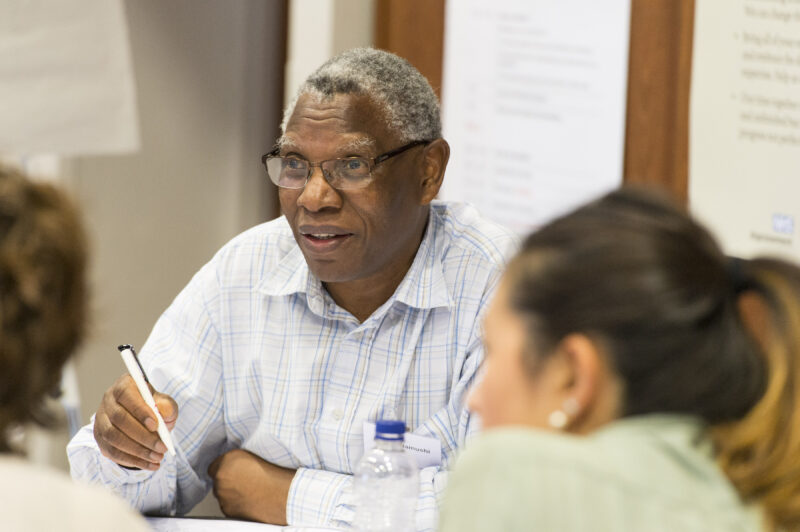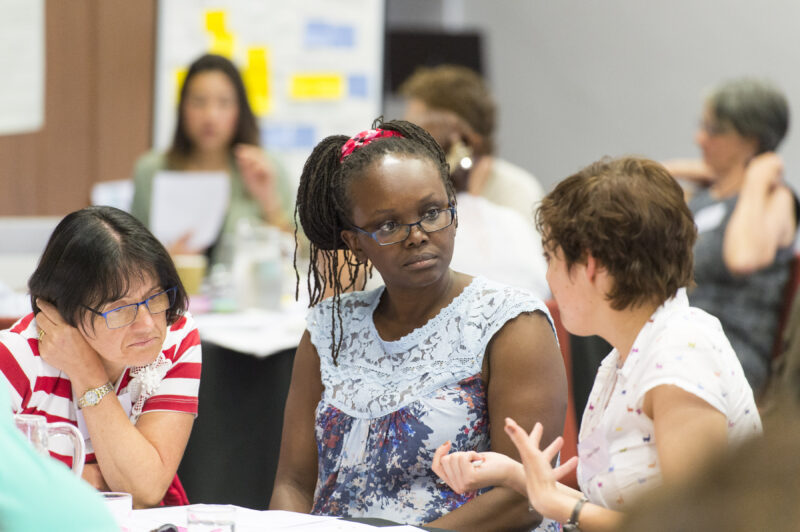What is a Q Special Interest Group (SIG)?
SIGs are online gathering spaces for health and care professionals, patient leaders and others with shared interests/expertise. They’re here to help us connect and support each other, share challenges and learn from our peers – and also grow collaborations.
Though SIGs always have at least one Q member on their convening team, they accept and even encourage participation by non-Q members, ‘guests’. SIGs often cross geographical and professional boundaries and are self-managed by members of the Q community.
In other words, if you’re a health and care professional looking for your peers, joining or starting a SIG might be a great first step.
What do SIGs do?
Since SIGs are led directly by the community, we don’t like to over-define them. Each SIG is free to create their own interactions and dynamics — and the Q community team is here to support that, in whatever direction it takes.
Some SIGs exist primarily as an online space where professionals can ask each other questions on a particular topic while others act like online community centres; hosting monthly virtual calls, providing workshops/training, supporting the financing of relevant projects and much more.
SIGs are here to connect professionals who share something in common, and any activity that facilitates that – eg organising virtual calls, face to face gatherings, Q&As, creation of collaborative documents, tweet-chats and more. When a SIG becomes particularly productively focused on one area, some may start to view it as turning into a ‘Community of Practice’.

Convenors: how they lead a SIG
SIGs cannot exist without leadership — we call the people who lead and catalyse a SIG, ‘convenors’.
The role of convenors is as varied as the activities of the SIGs themselves. As the Q community team, we’re not here to tell convenors what to do, but to ask them how we can support them in whatever way they see they can empower and grow their communities.
Convenors are leaders, they’re responsible for carrying the flag of their SIGs and the topic that the SIG represents. They’re community congregators, bringing people together and welcoming new joiners.
The next section will explore the first steps of a SIG, but once the SIG is up and running, you can host a myriad of activities. Here are some examples for your consideration:
- Ask/answer questions in the SIG
- host online calls, inviting other multiple professionals as speakers
- host face to face events
- open a Twitter account for your SIG
- host a tweet-chat
- write blog posts and use other online communication
- invite the Health Foundation to share its learning with your SIG (contact Insight&AnalysisUnit@health.org.uk and ask about your SIG’s topic)
- apply for Q funding (more on that below).
We can make SIGs more welcoming by adding a homepage image, an automated ‘welcome’ email and making sure that messages members post in the SIG’s group space get responded to, and that new joiners are welcomed to the group.

How to start a new SIG
The Q community team has developed a ‘Starting a Special Interest Group’ form to help the creation of new SIGs.
Once you fill the form in our team will contact you to help you with your first steps.
It asks for the technical information we need (a name, a description, the first convenors) and a couple of basic questions that will help you on the beginning of your own convenor journey, such as:
- What first few topics are you interested in exploring?
- Who are your first allies? (the first people who will join those conversations)
- What are the first few events/activities you’re thinking about proposing?
- In what areas do you feel you could use support from the Q community team?
Once the form is filled out and the SIG has been created on the Q website, the first few weeks are dedicated to the activation of your allies. This first group of people should create a ripple effect, inviting more relevant people to the group. Think about how you can you host conversations and topics that will bring more allies into the group.
This can happen in many ways, from direct communications like posting about your SIG on your LinkedIn page, tweeting about it or mentioning it in a face to face event, or in one on one conversations. The Q community team is also here to help; new SIG convenors have the opportunity to write a ‘My Improvement Journey’ blog post that is published on the Q website to promote the group, we can also include promotion of the new SIG in our monthly newsletter, and more.

How to apply for funding to grow your SIG
One of Q’s key offers to health and care professionals is the access to funding.
Currently (March 2022) Q offers two different funding programs:
Supporting Q Connections (SQC) is a program that funds activities that help members to build and strengthen their networks across the improvement landscape, and share and apply learning.
For Q Exchange, being a convenor (or, in other words, a community leader on the topic of your SIG) is a bonus, though not a requirement. SQC on the other hand is focused on networks, so the funding has so far been exclusive to convenors.
Q Exchange is a program that aims to activate the knowledge of improvement experts across the UK; to create links between those leading work and those who can help champion, support, adopt these ideas; and to boost ideas that have the best potential to generate value for the health and care system.

How to grow your convenor skills
If you’re already a convenor and you’re looking to upskill as a community builder and network catalyst, here’s a reading list the Q community team has curated for you:
Systems Convening is a type of relational leadership aimed at setting up and nurturing social spaces that allow people from different disciplines and backgrounds to collaborate. This free PDF of the book Systems Convening – a crucial form of leadership for the 21st century includes interviews with several Q members who are Systems Convenors.
Microsolidarity is an easy-to-plug-in framework for different sizes of groups (from two to over 200) and the different challenges and actions to activate each of them.
A Gardener’s Guide to Communities of Practice is a toolkit compendium about bringing together leaders and practitioners who are involved in the same sector to collaborate and learn from each other. Authored by a Q member.
The Learning Communities Handbook is a toolkit about complex conversations, detailing how to introduce people to deeper, richer topics so the members of a group can learn from each other. Co-authored by a Q member.
If you’re still keen to learn more, get in touch with our Q community team:
- Joriam Ramos: joriam@enspiral.com
- Matthew Mezey: matthew.mezey@health.org.uk